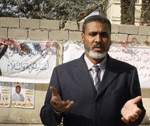Published on Thu, 2013-05-02 10:55
Unlike many developing countries, India’s economy has been growing at a fast pace, enabling the government to mobilize the necessary resources internally for the achievement of the Millennium Development Goals (MDGs) by 2015. Its dependence on international aid, especially for financial resources is minimal; in fact it has declined bilateral aid from many countries. Despite this, however, the country has failed to achieve most of the goals and targets. The main reasons for this are inadequate funding, inappropriate administration and ignorance of policy and governance issues. Ultimately however, the failure is due to the absence of inclusiveness in the development model. Instead of enabling people to acquire basic needs such as food, sanitation, water, health care, the government is promoting ‘non-inclusive growth’ and has sought to provide basic services through subsidies with the associated problems of inefficiency and corruption. |
Published on Thu, 2013-05-02 10:06
This publication analyses the role gender equality plays in the post-Rio+20 process for a new development agenda centered around a set of SDGs. It looks at proposals and efforts to integrate gender equality and women's rights into efforts to define the SDGs and argues that a new global women's coalition of committed advocates and women's rights activists to focus more aggressively on governance and policy reform in the post-2015 development agenda, particularly on macro-economic policy reform. |
Published on Wed, 2013-05-01 13:04
Representatives of civil society organizations; the signatories of this appeal, condemn the assassination in Basrah on 26 April 2013 of the activist, Jalal Dhiyab; the President of the Supporters Humanitarian Liberty Association, one of the outstanding defenders of human rights in Iraq, who has devoted much of his life to defend black rights for full citizenship, and his legitimate claim to address the culture of discrimination and the rights of black citizens in political representation and participation in public life, draw a road map for the achievement of equality and the promotion of political representation and participation in public life, draw a road map for the achievement of equality and the promotion of citizenship rights for all components in the process of building a democratic system in Iraq. |
Published on Thu, 2013-04-25 15:15
In 2012, the authorities in Bahrain showed little if any readiness to engage with the political opposition and civil society in order to find a fair and sustainable solution to socio-political and socio-economic challenges facing the nation. If anything, officials intensified their repression of the democratic wishes expressed by a sizable number of people in February 2011. Sadly, by shunning repeated calls for face to face roundtable negotiations, officials have only succeeded in harming the country's potential, reputation and ranking in international economic, political and social development indices. This report focuses on the costs to the country's performance on various indicators as well as to the likelihood of achieving the Millennium Development Goals (MDGs) by 2015. |
Published on Tue, 2013-04-23 14:01
The UN has launched an extensive worldwide discussion on the new development agenda that is to succeed the Millennium Development Goals in 2015. Jens Martens, long-time observer of international development and environmental policy, cautions in an interview against consultation overkill and calls on NGOs to develop alternatives that go beyond what is currently politically feasible. |
SUSCRIBE TO OUR NEWSLETTER




.gif)


